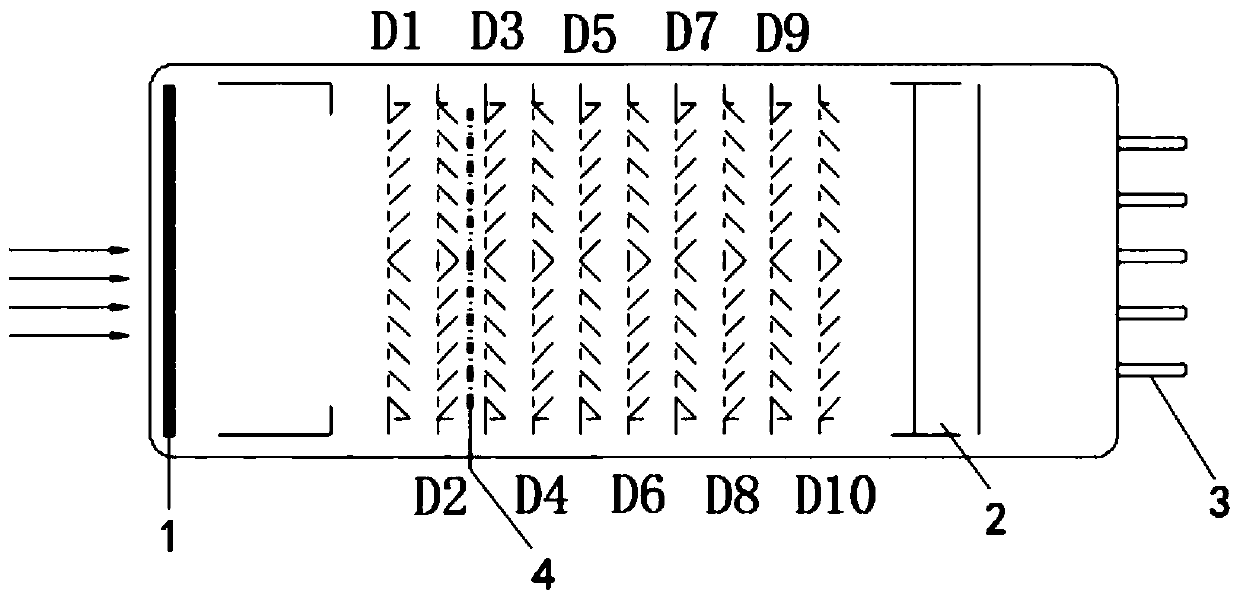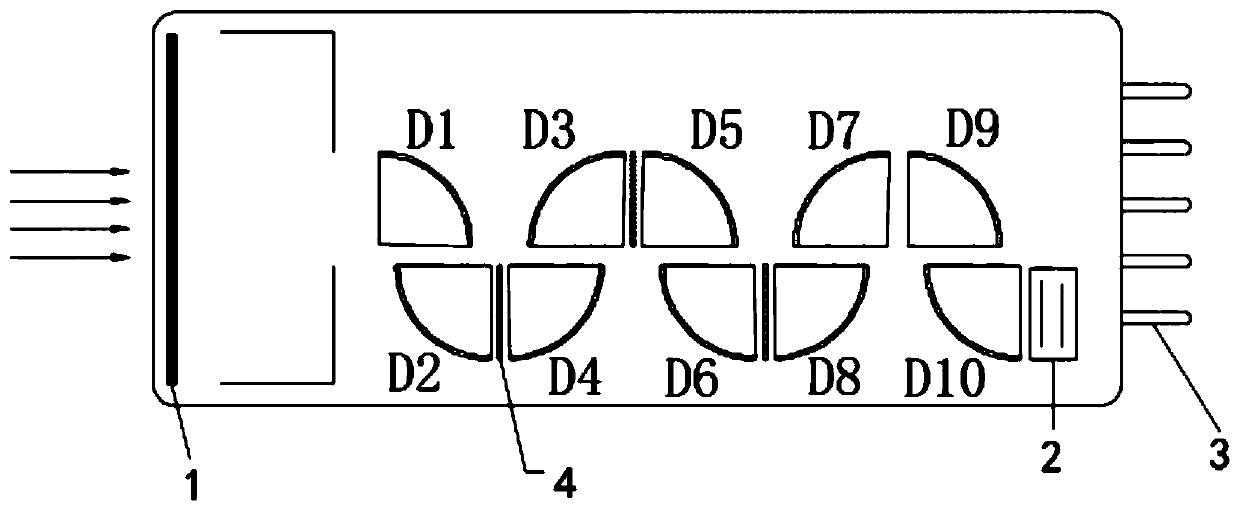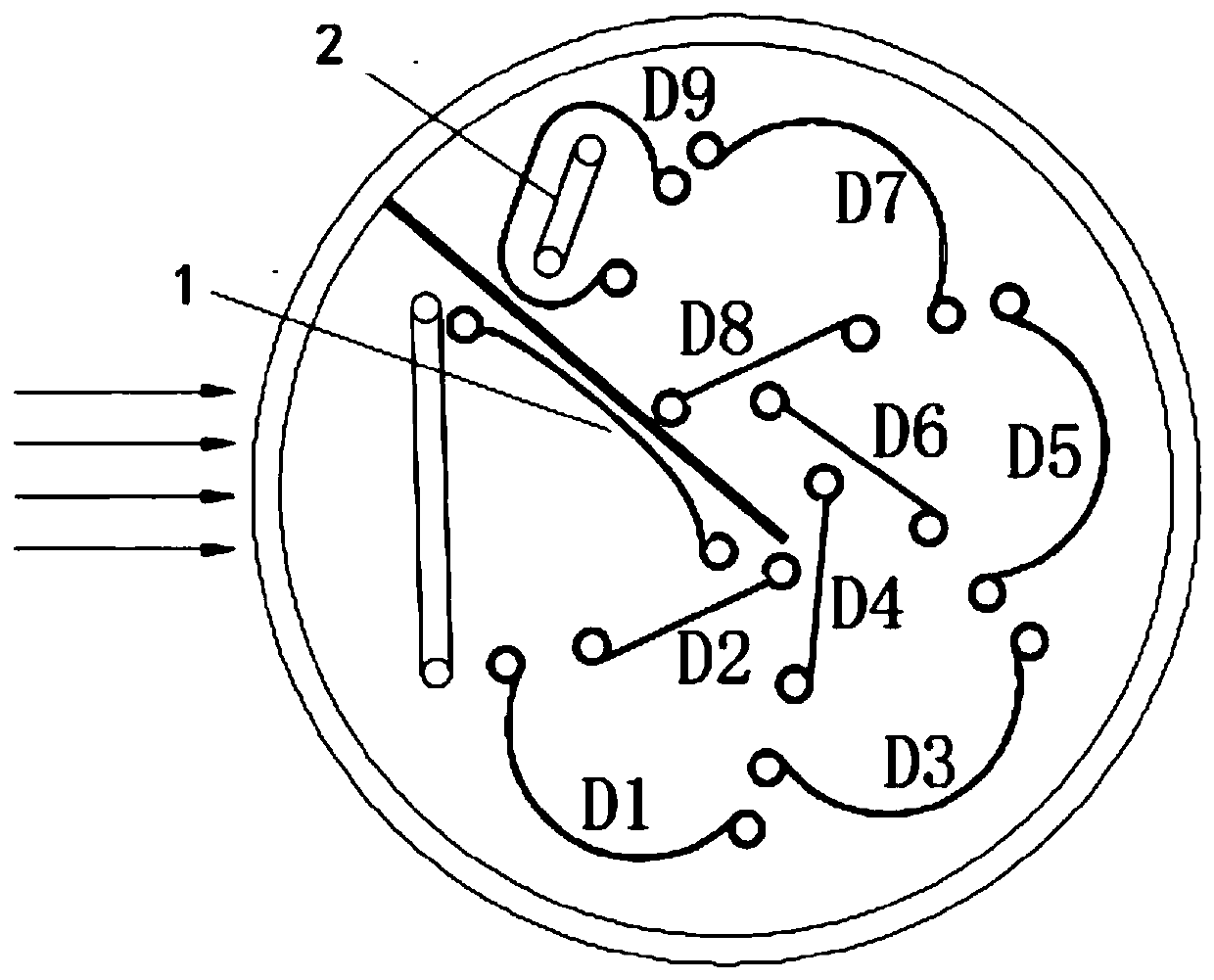Method for improving dynamic range of photomultiplier
A photomultiplier tube and dynamic range technology, applied in the direction of dynamic electron multiplier tubes, etc., can solve the problems that the output signal of the anode of the device deviates from the linear working area saturation, and the total number of electron multiplications is too large, so as to improve the working dynamic range, broad market prospects, The effect of high application value
- Summary
- Abstract
- Description
- Claims
- Application Information
AI Technical Summary
Problems solved by technology
Method used
Image
Examples
Embodiment Construction
[0032] Attached below Figure 1-5 , the specific implementation of the present invention will be described in detail, but it should be understood that the protection scope of the present invention is not limited by the specific implementation.
[0033] The reason why the photomultiplier tube has excellent high current amplification and high signal-to-noise ratio, that is, high gain, benefits from the use of a secondary electron emission system based on multiple arrangements, that is, an electron multiplication system. Each dynode is a secondary electron multiplication system. The material composition has the ability to multiply the primary electrons, and the multiplication system is the most critical part that determines the sensitivity of the whole tube. It can multiply electrons under low-noise conditions. The electron multiplication system generally consists of several to 15 levels. There are two types of focused and non-focused types. Focused dynodes have ring tile multipl...
PUM
 Login to View More
Login to View More Abstract
Description
Claims
Application Information
 Login to View More
Login to View More - R&D
- Intellectual Property
- Life Sciences
- Materials
- Tech Scout
- Unparalleled Data Quality
- Higher Quality Content
- 60% Fewer Hallucinations
Browse by: Latest US Patents, China's latest patents, Technical Efficacy Thesaurus, Application Domain, Technology Topic, Popular Technical Reports.
© 2025 PatSnap. All rights reserved.Legal|Privacy policy|Modern Slavery Act Transparency Statement|Sitemap|About US| Contact US: help@patsnap.com



